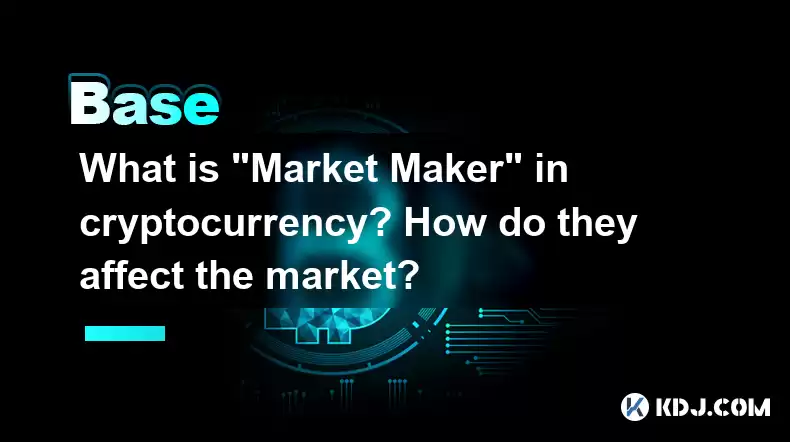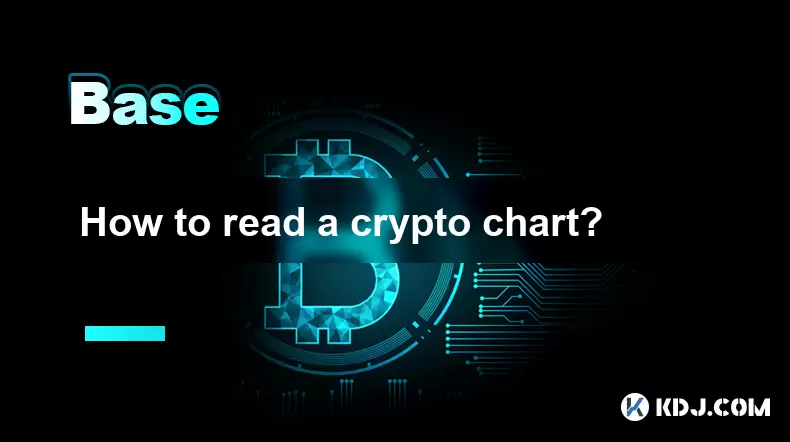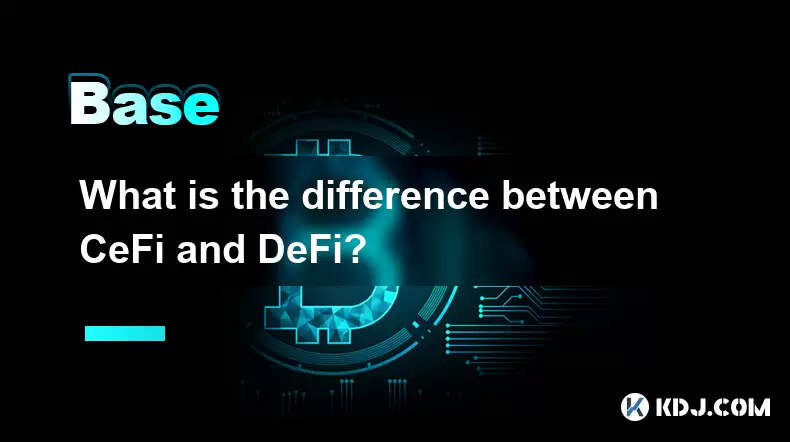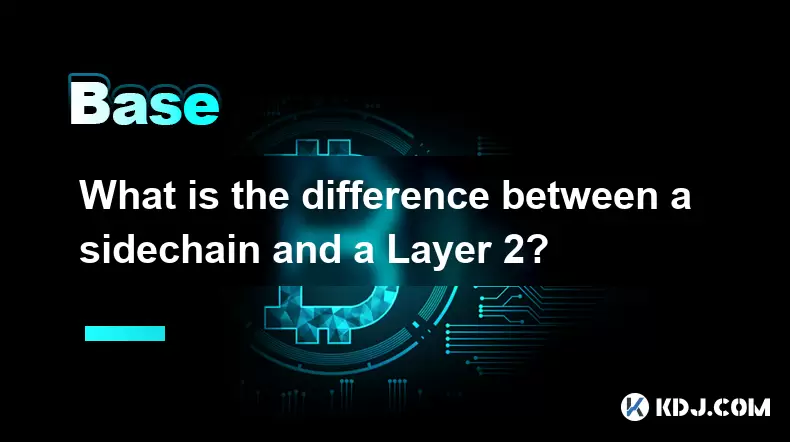-
 Bitcoin
Bitcoin $117500
2.15% -
 Ethereum
Ethereum $3911
6.19% -
 XRP
XRP $3.316
10.79% -
 Tether USDt
Tether USDt $1.000
0.01% -
 BNB
BNB $787.2
2.24% -
 Solana
Solana $175.2
4.15% -
 USDC
USDC $0.9999
0.00% -
 Dogecoin
Dogecoin $0.2225
8.40% -
 TRON
TRON $0.3383
0.28% -
 Cardano
Cardano $0.7868
6.02% -
 Stellar
Stellar $0.4382
9.34% -
 Hyperliquid
Hyperliquid $40.92
7.56% -
 Sui
Sui $3.764
7.63% -
 Chainlink
Chainlink $18.48
10.66% -
 Bitcoin Cash
Bitcoin Cash $582.1
1.88% -
 Hedera
Hedera $0.2601
6.30% -
 Avalanche
Avalanche $23.33
4.94% -
 Ethena USDe
Ethena USDe $1.001
0.02% -
 Litecoin
Litecoin $122.3
2.04% -
 UNUS SED LEO
UNUS SED LEO $8.969
-0.27% -
 Toncoin
Toncoin $3.339
0.86% -
 Shiba Inu
Shiba Inu $0.00001287
4.30% -
 Uniswap
Uniswap $10.43
7.38% -
 Polkadot
Polkadot $3.861
5.08% -
 Dai
Dai $1.000
0.02% -
 Bitget Token
Bitget Token $4.513
3.41% -
 Monero
Monero $267.7
-6.18% -
 Cronos
Cronos $0.1499
4.14% -
 Pepe
Pepe $0.00001110
5.15% -
 Aave
Aave $284.9
8.28%
What is "Market Maker" in cryptocurrency? How do they affect the market?
Market makers ensure liquidity in crypto markets by quoting bid and ask prices, facilitating smooth trading and influencing price stability.
Mar 29, 2025 at 06:56 pm

Understanding Market Makers in the Cryptocurrency World
Market makers are crucial entities within the cryptocurrency ecosystem. They provide liquidity to exchanges by constantly quoting bid and ask prices for various cryptocurrencies. This ensures that traders can buy or sell assets relatively easily, even during periods of low trading volume. Their role is fundamental to the smooth functioning of cryptocurrency exchanges and the overall market stability. Without market makers, trading would be significantly more difficult and potentially volatile.
How Market Makers Provide Liquidity
Market makers achieve liquidity by maintaining a substantial inventory of cryptocurrencies. They are essentially acting as counterparties to traders. When someone wants to buy a cryptocurrency, the market maker sells from their inventory. Conversely, when someone wants to sell, the market maker buys, adding to their inventory. This constant buying and selling ensures a continuous flow of transactions. The depth of their inventory directly impacts the liquidity available in the market. A larger inventory generally translates to greater liquidity and tighter bid-ask spreads.
The Mechanics of Market Making
The process of market making involves sophisticated algorithms and high-frequency trading strategies. These algorithms constantly monitor market conditions and adjust bid and ask prices to maximize profits while maintaining a balanced inventory. The goal is to profit from the bid-ask spread – the difference between the buying and selling price. Market makers often employ sophisticated risk management techniques to mitigate potential losses from adverse price movements.
Types of Market Makers
There are several types of market makers in the cryptocurrency space, each with its own approach and characteristics. Some are large, centralized entities with substantial capital, while others are smaller, decentralized entities using automated trading bots. The strategies employed also vary significantly. Some focus on providing liquidity across a wide range of cryptocurrencies, while others specialize in specific assets. The diversity of market makers contributes to the overall robustness of the market.
How Market Makers Affect Market Prices
Market makers have a significant influence on cryptocurrency prices. Their constant buying and selling activities create a more stable and liquid market. However, their actions can also inadvertently affect price discovery. By setting bid and ask prices, they directly influence the perceived value of a cryptocurrency. Large market maker orders can temporarily move prices, especially in less liquid markets. Their activities are constantly scrutinized for any signs of market manipulation, though regulations are still evolving in this area.
Risks Associated with Market Making
Market making in cryptocurrencies is a risky business. Adverse price movements can lead to significant losses, especially for market makers holding large inventories. The volatility inherent in the cryptocurrency market makes it challenging to predict price movements accurately. Furthermore, the regulatory landscape is still developing, creating uncertainty and potential legal risks. Market makers must constantly adapt to changing market conditions and regulatory developments.
Market Maker Incentives and Profitability
Market makers are incentivized by the bid-ask spread and the volume of trades they facilitate. A wider spread generates more profit per trade, but it also reduces the attractiveness of the market to other traders. High trading volume compensates for a narrower spread, providing overall profitability. The ability to accurately predict price movements is crucial for maximizing profits and minimizing losses. Sophisticated risk management strategies are essential for survival in this volatile environment.
The Role of Technology in Market Making
Technological advancements play a crucial role in modern cryptocurrency market making. High-frequency trading algorithms, advanced analytics, and sophisticated risk management tools are essential for success. The use of blockchain technology itself can improve transparency and efficiency in market making operations. However, the constant technological evolution also presents challenges, requiring market makers to continuously adapt and upgrade their systems.
Market Makers and Decentralized Exchanges (DEXs)
While traditional exchanges rely heavily on centralized market makers, decentralized exchanges (DEXs) are exploring alternative models. Automated market makers (AMMs) are becoming increasingly popular on DEXs. These AMMs use algorithms to automatically provide liquidity without the need for traditional market makers. However, AMMs also have their limitations, such as susceptibility to manipulation and potential inefficiency in certain market conditions. The interplay between traditional market makers and AMMs is shaping the future of liquidity provision in the cryptocurrency space.
Regulation and Market Makers
The regulatory landscape for cryptocurrency market makers is still evolving. Authorities are grappling with the complexities of this rapidly changing industry. Concerns about market manipulation and investor protection are driving regulatory efforts. Increased transparency and accountability are likely to be key aspects of future regulations affecting market makers. Compliance with evolving regulations is crucial for the long-term sustainability of market making operations.
The Future of Market Making in Crypto
The future of market making in the cryptocurrency space is likely to be characterized by increasing automation, decentralization, and regulatory scrutiny. Technological advancements will continue to shape the strategies and tools used by market makers. The increasing adoption of cryptocurrencies will also drive demand for more efficient and robust liquidity provision mechanisms. The interplay between traditional market makers and decentralized alternatives will continue to shape the landscape.
Frequently Asked Questions
Q: What is the difference between a market maker and a trader?
A: A market maker provides liquidity by quoting both bid and ask prices, aiming to profit from the spread. A trader focuses on speculating on price movements to generate profits.
Q: Can market makers manipulate the market?
A: While market makers influence prices through their actions, deliberate manipulation is illegal and carries significant risks. Regulatory scrutiny aims to prevent such activities.
Q: How can I become a market maker?
A: Becoming a market maker requires substantial capital, sophisticated trading algorithms, and a deep understanding of the cryptocurrency market. It's a highly specialized and risky endeavor.
Q: Are all market makers the same?
A: No, market makers vary significantly in size, strategies, and the cryptocurrencies they focus on. Some are large institutions, while others are smaller, automated entities.
Q: How do market makers make money?
A: Market makers primarily profit from the bid-ask spread – the difference between the buying and selling price. High trading volume also contributes to their profitability.
Q: What are the risks involved in market making?
A: Market making is inherently risky due to the volatility of cryptocurrencies. Adverse price movements can lead to substantial losses, and regulatory changes can also impact profitability.
Disclaimer:info@kdj.com
The information provided is not trading advice. kdj.com does not assume any responsibility for any investments made based on the information provided in this article. Cryptocurrencies are highly volatile and it is highly recommended that you invest with caution after thorough research!
If you believe that the content used on this website infringes your copyright, please contact us immediately (info@kdj.com) and we will delete it promptly.
- Tron's Sell-Off Spurs Altcoin Shift: What's Next for TRX?
- 2025-08-08 08:30:12
- RUVI Presale: Is the Growth Potential Real?
- 2025-08-08 09:10:12
- Sleep Token's US Takeover: Thornhill Rides the 'Even In Arcadia' Wave
- 2025-08-08 08:30:12
- FTT Token's Wild Ride: Creditor Repayments vs. Market Drop - A New Yorker's Take
- 2025-08-08 07:10:12
- Floki Crypto Price Prediction: Riding the Robinhood Rocket or Just a Meme?
- 2025-08-08 07:15:12
- EigenLayer, Restaking, and Ethereum: Navigating the Hype and the Hazards
- 2025-08-08 06:30:12
Related knowledge

How to read a crypto chart?
Aug 08,2025 at 10:35am
Understanding the Basics of a Crypto ChartA crypto chart is a visual representation of the price movements of a cryptocurrency over time. These charts...

What is the difference between CeFi and DeFi?
Jul 22,2025 at 12:28am
Understanding CeFi and DeFiIn the world of cryptocurrency, CeFi (Centralized Finance) and DeFi (Decentralized Finance) represent two distinct financia...

How to qualify for potential crypto airdrops?
Jul 23,2025 at 06:49am
Understanding What Crypto Airdrops AreCrypto airdrops refer to the distribution of free tokens or coins to a large number of wallet addresses, often u...

What is a crypto "airdrop farmer"?
Jul 24,2025 at 10:22pm
Understanding the Role of a Crypto 'Airdrop Farmer'A crypto 'airdrop farmer' refers to an individual who actively participates in cryptocurrency airdr...

What is the difference between a sidechain and a Layer 2?
Jul 20,2025 at 11:35pm
Understanding the Concept of SidechainsA sidechain is a separate blockchain that runs parallel to the main blockchain, typically the mainnet of a cryp...

What is the Inter-Blockchain Communication Protocol (IBC)?
Jul 19,2025 at 10:43am
Understanding the Inter-Blockchain Communication Protocol (IBC)The Inter-Blockchain Communication Protocol (IBC) is a cross-chain communication protoc...

How to read a crypto chart?
Aug 08,2025 at 10:35am
Understanding the Basics of a Crypto ChartA crypto chart is a visual representation of the price movements of a cryptocurrency over time. These charts...

What is the difference between CeFi and DeFi?
Jul 22,2025 at 12:28am
Understanding CeFi and DeFiIn the world of cryptocurrency, CeFi (Centralized Finance) and DeFi (Decentralized Finance) represent two distinct financia...

How to qualify for potential crypto airdrops?
Jul 23,2025 at 06:49am
Understanding What Crypto Airdrops AreCrypto airdrops refer to the distribution of free tokens or coins to a large number of wallet addresses, often u...

What is a crypto "airdrop farmer"?
Jul 24,2025 at 10:22pm
Understanding the Role of a Crypto 'Airdrop Farmer'A crypto 'airdrop farmer' refers to an individual who actively participates in cryptocurrency airdr...

What is the difference between a sidechain and a Layer 2?
Jul 20,2025 at 11:35pm
Understanding the Concept of SidechainsA sidechain is a separate blockchain that runs parallel to the main blockchain, typically the mainnet of a cryp...

What is the Inter-Blockchain Communication Protocol (IBC)?
Jul 19,2025 at 10:43am
Understanding the Inter-Blockchain Communication Protocol (IBC)The Inter-Blockchain Communication Protocol (IBC) is a cross-chain communication protoc...
See all articles

























































































